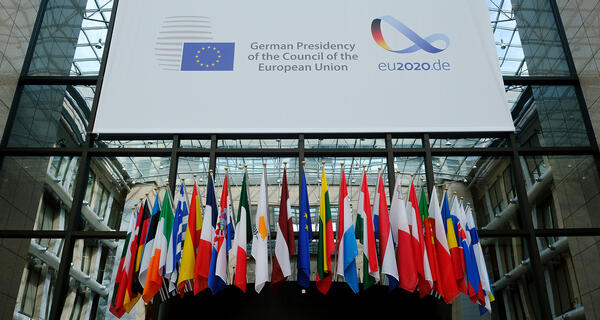While German industry was initially sceptical of the energy transition in the first few years, the picture has changed significantly in recent years. Today the energy transition and decarbonisation in general are associated with great economic potential internationally. There is also broad public support for the energy transition, following the increasing awareness of climate change and the need for measures to keep climate warming below 1.5 °C in line with the Paris Agreement.
Industrial consumers are open to transitioning to new decarbonised fuels, especially those based on hydrogen. At the same time, the investor community is increasingly looking at adapting its practices to the requirements of environmental and climate protection and focusing investments in sustainable technologies. The pressure to innovate is obviously very strong and represents an important megatrend.
The German government has recently decided to remove all coal-fired power plants from the grid by 2038 at the latest. This is now stipulated by law and the phase-out is beginning. In addition, the CO2 price will initially be expanded nationally to all relevant sectors. This is no longer under discussion, but being implemented administratively. It is a clear commitment to climate protection, especially when you consider the size and complexity of the German economy, but voices demanding more speed can still be heard.
Next, the further internationalisation of climate protection approaches is on the agenda and Europe is the obvious next dimension. Here, the climate protection efforts of the Member States can be coordinated and the framework conditions set for this large internal market, so that national climate protection does not lead to a disadvantage. In this respect, but also as an export country, Germany certainly has an interest in taking the German EU Council Presidency as an opportunity to reinforce the commitment to climate protection targets and further advancing an EU Green recovery.
Emerging stronger from the crisis
The COVID-19 pandemic initially appears to be calling for a new focus. Overcoming the pandemic and Europe's sustainable economic and social recovery are priorities. At the same time, however, exceptionally large budgets are being made available; while their use is diverse on the one hand, they are clearly orientated towards investments in terms of decarbonisation. The German Presidency has set out the implementation of the European Green Deal and the completion of the referral to the European Climate Act as well as its support for the new circular economy action plan and the EU biodiversity strategy in a separate programme priority.
Work programme for climate protection
Chancellor Merkel reconfirmed on 8 July 2020, in front of the European Parliament that Germany's goal is to make Europe's climate neutrality legally binding by 2050 and to adjust the climate targets for 2030 accordingly. In particular, the extension of CO2 emission prices to all sectors and the introduction of a moderate minimum price for CO2 emissions within the framework of the EU Emissions Trading System (ETS) will be a topic.
With regard to renewable energies and energy efficiency, how the goals for 2030 can be achieved will be discussed and, in particular, the focus will be on offshore wind energy.
The topic of hydrogen has been defined as a priority area and has already been prepared by a national hydrogen strategy and a European hydrogen strategy. Of course this is a key policy area to further decarbonise European economies with growth prospects for clean hydrogen in hard-to-abate sectors and an aim to move towards seamless functioning and integrated electricity, gas and heat sectors.
Strong climate policy requires strong leadership. At Fortum, we highly value the German EU Presidency’s strong commitment to decarbonisation – both domestically and at the European level. The German EU Presidency will play an important role in leading the way forward from the unprecedented economic recession caused by COVID-19 while ensuring that economic recovery will happen in a sustainable manner and in support of decarbonisation. From that perspective, we fully support the key priorities of the German EU Presidency, such as the alignment of the EU climate target with the Green Deal ambition, strengthening the carbon pricing and market-based process, as well as facilitating the development of the European hydrogen market.
Whether the German EU Presidency will be successful is also naturally a question of the will of all Member States to reach an agreement on issues that are crucial for the future development of the whole continent.
